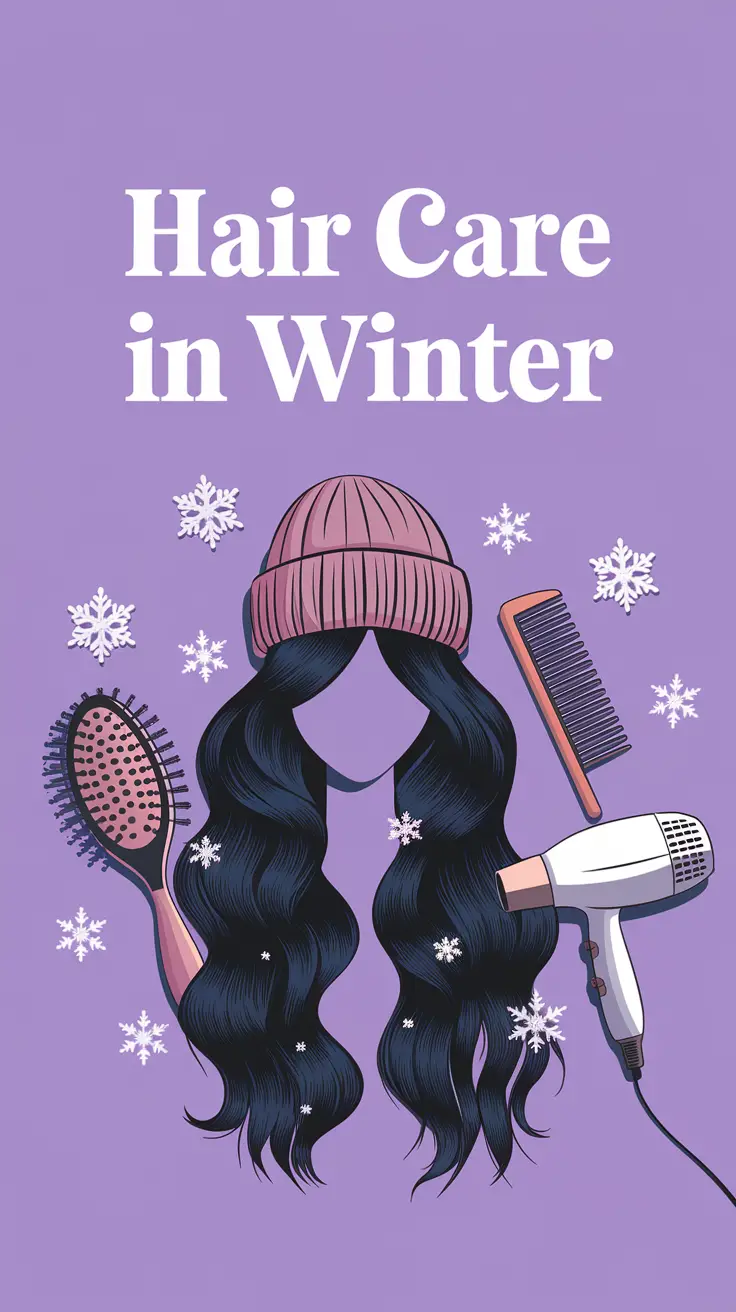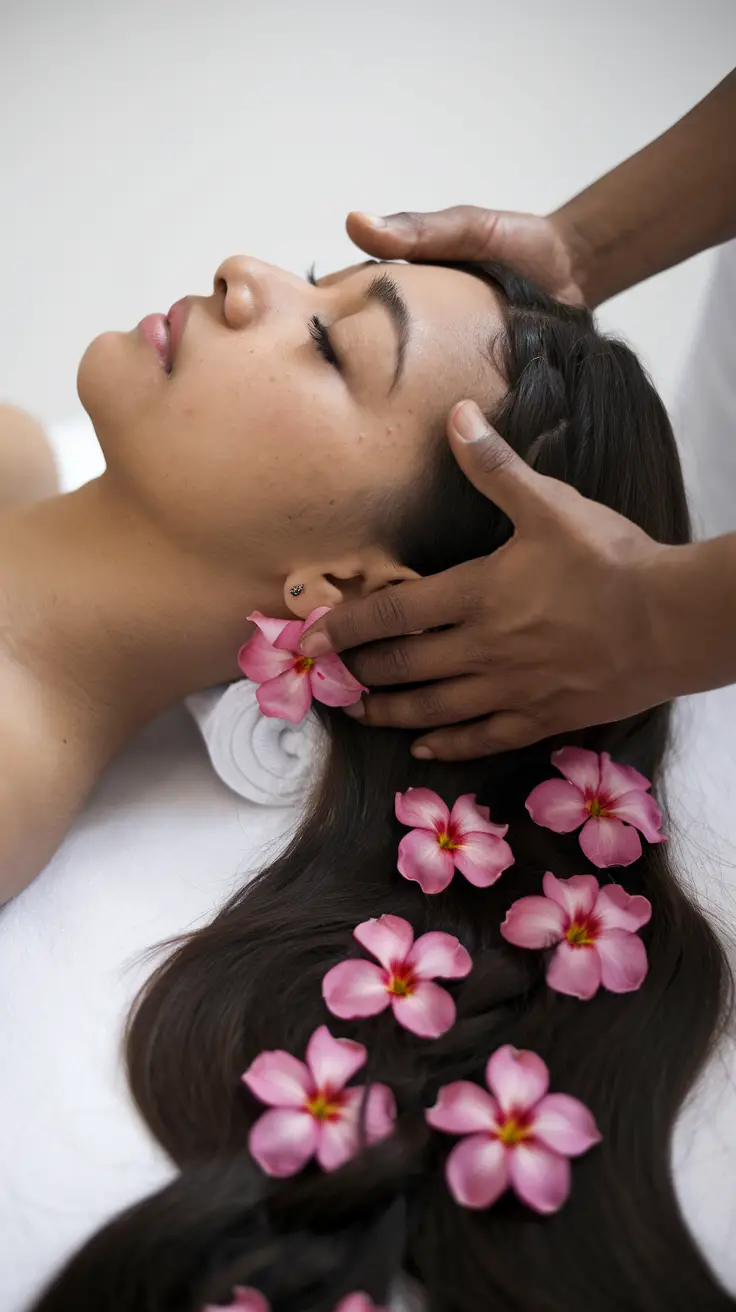Hair Care in Winter: Your Ultimate Guide to Healthy Tresses
As the winter chill sets in, our hair often bears the brunt of the season’s harshness. Dryness, frizz, and increased breakage can leave your locks looking lackluster and unmanageable. On my journey to maintaining vibrant, healthy hair, I’ve discovered essential strategies that truly work.
Let me share everything you need to know to protect and nourish your hair throughout the colder months.
Understanding Winter’s Impact on Hair

Winter weather can be unforgiving. Cold temperatures and dry indoor heating strip moisture from your hair, leaving it brittle and prone to damage. Reduced sunlight also lowers vitamin D levels, which can slow cell renewal and weaken hair follicles.
Key Challenges:
- Dryness: Lack of humidity dries out both hair and scalp.
- Frizz and Static: Cold weather and synthetic fabrics increase static electricity.
- Breakage: Hair becomes more fragile due to reduced elasticity.
- Dandruff: A dry scalp often leads to flakiness and irritation.
| Winter Challenge | Causes | Solutions |
|---|---|---|
| Dryness | Low humidity, indoor heating | Deep conditioning, oil massages |
| Frizz and Static | Cold air, synthetic fabrics | Silk-lined hats, leave-in conditioners |
| Breakage | Reduced elasticity | Regular trims, hydrating masks |
| Dandruff | Scalp dryness | Anti-dandruff shampoos, oil treatments |
Essential Winter Hair Care Tips

1 Maintain Scalp Health
A healthy scalp is the foundation of beautiful hair. Regularly massage your scalp with nourishing oils like coconut, argan, or olive oil to restore moisture, reduce flakiness, and promote blood circulation.
- DIY Tip: Mix a few drops of tea tree oil with coconut oil for an anti-dandruff scalp treatment.
2 Adjust Your Washing Routine
Over-washing strips natural oils that protect your hair. Wash your hair 2-3 times a week using a sulfate-free, hydrating shampoo.
Quick Tip: Always rinse with lukewarm water—hot water can dry out your hair further.
| Washing Routine Tips | Benefits |
| Use sulfate-free shampoo | Prevents excessive dryness |
| Rinse with lukewarm water | Retains natural oils |
| Wash 2-3 times per week | Maintains scalp’s moisture balance |
3 Deep Conditioning Treatments
Replenish lost moisture by incorporating deep conditioning masks weekly. Look for products containing shea butter, keratin, or argan oil.
- DIY Mask Recipe: Mix 2 tablespoons of avocado, 1 tablespoon of honey, and a teaspoon of olive oil. Apply to your hair for 30 minutes before rinsing.
4 Protect Your Hair Outdoors
Cold winds and low temperatures can sap moisture from your hair. Protect it by wearing a hat or scarf lined with silk or satin to prevent friction and static.

5 Limit Heat Styling
Heat styling tools like blow dryers and flat irons can exacerbate dryness. Use them sparingly and always apply a heat protectant spray beforehand.
Alternative Styling Methods:
- Opt for braids or buns.
- Use heatless curling tools like flexi rods.
6 Use a Humidifier Indoors
Central heating can dry out the air, impacting your hair’s moisture levels. A humidifier adds moisture back into your environment, helping your hair stay hydrated.
7 Regular Trims
Split ends are more common in winter due to increased dryness. Schedule trims every 6-8 weeks to keep your hair healthy.
Dietary Impact on Hair Health
Healthy hair starts from within. Incorporate these nutrients into your diet for stronger, shinier locks:
| Nutrient | Benefits | Sources |
| Omega-3 Fatty Acids | Reduces dryness and promotes shine | Salmon, walnuts, flaxseeds |
| Vitamin D | Strengthens hair follicles | Fortified cereals, mushrooms, fish |
| Biotin | Improves hair thickness | Eggs, almonds, sweet potatoes |
| Zinc | Prevents hair loss | Oysters, chickpeas, pumpkin seeds |
Tailored Care for Different Hair Types
For Dry Hair:
- Use products with hydrating ingredients like shea butter and glycerin.
For Oily Hair:
- Balance oil production by washing with a clarifying shampoo weekly.
For Curly Hair:
- Lock in moisture with leave-in conditioners and curl creams.
Home Remedies and DIY Masks
Anti-Frizz Hair Mask:
- 1 banana
- 1 tablespoon of honey
- 1 tablespoon of almond oil
Mash the banana and mix it with honey and almond oil. Apply to damp hair for 20 minutes before rinsing.
Scalp Soothing Mask:
- 2 tablespoons of yogurt
- 1 teaspoon of aloe vera gel
Apply the mixture to your scalp to reduce irritation and flakiness.
Nighttime Hair Care
- Sleep on silk or satin pillowcases to minimize friction.
- Apply a lightweight leave-in conditioner or serum before bed.
- Braid your hair loosely to prevent tangles.
Additional Protection Against Pollution
Winter pollution can worsen hair problems. Use anti-pollution hair mists or sprays to create a protective barrier.
Recommended Products:
- L’Oréal Paris Extraordinary Oil Mist
- Aveda Sun Care Protective Hair Veil
Conclusion
Winter hair care doesn’t have to be complicated. By following these tips—from maintaining scalp health and adjusting your washing routine to protecting your hair outdoors—you can ensure your locks stay healthy, hydrated, and beautiful all season long. Remember, consistency is key.
FAQs
1. How often should I wash my hair during winter?
Washing 2-3 times a week is ideal to retain natural oils.
2. How can I prevent dandruff in winter?
Keep your scalp hydrated with oil massages and use anti-dandruff shampoos with tea tree oil.
3. What’s the best way to reduce static in hair?
Use silk or satin accessories and keep your hair moisturized with leave-in conditioners.
4. Can I color my hair during winter?
Yes, but ensure you use color-safe, hydrating products and deep condition regularly.
5. How can I repair damaged hair in winter?
Regular trims, protein-rich hair masks, and avoiding excessive heat styling can help.
6. Should I change my hair care products for winter?
Yes, opt for moisturizing and sulfate-free products to combat seasonal dryness.
By implementing these strategies, you’ll be equipped to tackle any winter hair woes with confidence and ease!

